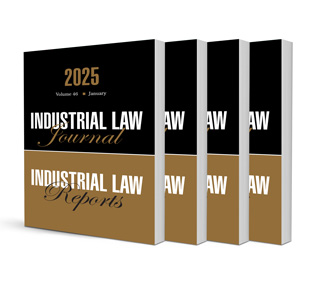The Relevancy of Expunged Criminal Records in Employment Matters in South Africa: O’Connor v LexisNexis (Pty) Ltd (2024) 45 ILJ 1287 (LC)

The Relevancy of Expunged Criminal Records in Employment Matters in South Africa: O’Connor v LexisNexis (Pty) Ltd (2024) 45 ILJ 1287 (LC)
Author Jamil Ddamulira Mujuzi
ISSN: 2413-9874
Affiliations: Professor of Law, Faculty of Law, University of the Western Cape
Source: Industrial Law Journal, Volume 46 Issue 4, 2025, p. 2333 – 2344
https://doi.org/10.47348/ILJ/V46/i4a4
Abstract
Sections 271B-271E of the Criminal Procedure Act provide for the expungement of some criminal records but are silent on the effect of such expungement. The drafting history shows that the effect of an expungement is that the person shall be regarded as never having been convicted of the offence for all intents and purposes. However, in O’Connor v LexisNexis (Pty) Ltd, the Labour Court failed to give effect to the intention of the legislature when it held that when a conviction is expunged, it becomes irrelevant for the purpose of sentencing but still relevant for the purpose of employment. The court also held that the refusal by an employer to employ a person simply because of his or her criminal record may amount to unfair discrimination under s 6 of the Employment Equity Act 55 of 1998 if there is no evidence that the record will prevent him or her from doing the job in question. The court’s reasoning in this regard should be applauded and should extend to instances where criminal records have not yet been expunged.
